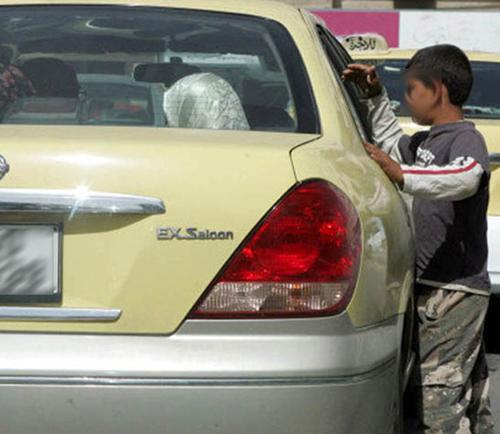You are here
More efficient anti-vagrancy efforts needed — Social Development Ministry
By Dana Al Emam - Jul 24,2017 - Last updated at Jul 24,2017
AMMAN — More efficient anti-vagrancy efforts require legislative amendments that would impose stricter penalties on violators, Social Development Ministry Spokesperson Fawaz Ratrout said on Sunday.
The ministry has detained some 2,600 beggars since the beginning of this year, including nearly 1,900 adults, he said, adding that the capital has recorded the largest number of cases.
The ministry’s records over the past few years show that nearly 75 per cent of detained beggars are citizens, while non-Jordanian detainees include Syrians and nationals of 12 other countries.
Meanwhile, the challenge facing the ministry’s Anti-Vagrancy Department is that the judiciary commonly penalises violators with fines and bails that they are usually able to afford, while admission to the ministry’s centre rarely happens.
This leads released detainees to go back to the streets over and over, he said.
“The ministry’s job is to detain beggars and refer them to law enforcement authorities,” Ratrout told The Jordan Times.
Among the number of detained beggars mentioned, no adults were admitted to the ministry’s centre, while only 70 out of the 700 underage detainees were admitted to the ministry’s centre, according to the official, who added that the ministry is preparing to open another centre.
To address the issue, the ministry is currently preparing a strategy, in cooperation with UNICEF, which will be released soon. It will address short, medium and long-term measures.
The strategy will be translated into efforts to enhance public awareness and to enact legislative amendments, Ratrout said.
However, he drew a distinction between beggars and individuals who illegally sell items on roads and at traffic lights, noting that these vendors are under the responsibility of municipalities, not the ministry.
Ratrout added that teams from the ministry and municipalities have recently been carrying out joint inspection campaigns, so that violators can be detained by the proper authorities.
Related Articles
AMMAN – Seven minors, including five girls, have recently been caught begging at 1am in Madaba Governorate, prompting authorities to refer t
AMMAN — The Ministry of Social Development’s anti-vagrancy teams have picked up around 3,600 men, women and children suspected of begging si
The anti-vagrancy department in Zarqa Governorate has detained 65 beggars of Arab nationalities, most of whom are women and children, an official said on Saturday.
















